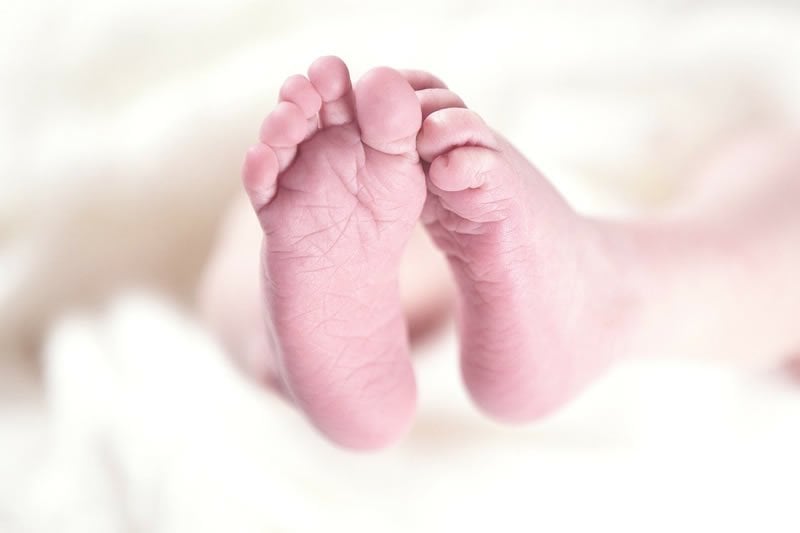Summary: Key biomarkers for predicting autism in newborns have been identified.
Source: Beaumont Health
Because early detection of autism is linked to significantly improved outcomes, the discovery of early predictors could make all the difference in a child’s development.
Dr. Ray Bahado-Singh, a geneticist and Chair of Obstetrics and Gynecology for Beaumont Health and the Oakland University William Beaumont School of Medicine and his research team, identified key biomarkers for predicting autism in newborns.
The preliminary, collaborative study used Artificial Intelligence, a computer-based technology which scans a map of the human genome.
The team’s findings could lead to an accessible, standardized newborn screening tool which uses a simple blood test, Dr. Bahado-Singh said, enabling earlier intervention, reducing disability and improving outcomes.
The project compared DNA from 14 known cases of autism to 10 control cases and featured researchers from the Oakland University William Beaumont School of Medicine, Albion College and the University of Nebraska Medical Center.
Results appeared in the journal Brain Research.
“Compared to what is currently available, these findings provide a more direct method which could be employed earlier on, shortly after birth,” Dr. Bahado-Singh said. “It’s been shown that children who are treated earlier do better in life.”
Symptoms of autism include sensory processing difficulties, anxiety, irritability, sleep dysfunction, seizures and gastrointestinal disorders.
According to Autism Speaks, nearly half of 25-year-olds diagnosed with autism have never held a paying job. In the United States, the majority of costs associated with autism are for adult services – an estimated $175 to $196 billion a year, compared to $61 to $66 billion a year for children.

Although the American Academy of Pediatrics recommends all children be screened between 18-24 months, children in large portions of the U.S. do not receive recommended clinical screenings.
Lori Warner, Ph.D., director of the Ted Lindsay Foundation HOPE Center which treats children with autism at Beaumont Children’s called the findings optimistic.
“We are always looking for new ways to make a difference in the lives of our patients,” Dr. Warner said. “Getting them into therapy early on is a proven way to make their path, and that of their families, easier and more meaningful.”
Dr. David Aughton, Genetics Chief for Beaumont Children’s, said he looks forward to additional, larger follow-up studies.
“Although it has been thought for many years that the underlying cause of a significant proportion of autism is likely to be nongenetic in nature, this study takes a very pragmatic and important first step toward investigating the epigenome — the inheritable changes in gene expression — and identifying those underlying nongenetic influences. The authors call for larger follow-up studies to validate their findings, and I eagerly look forward to learning the outcome of those validation studies.”
Source:
Beaumont Health
Media Contacts:
Maryanne MacLeod – Beaumont Health
Image Source:
The image is in the public domain.
Original Research: Open access
“Artificial intelligence analysis of newborn leucocyte epigenomic markers for the prediction of autism”. Ray O. Bahado-Singh et al.
Brain Research doi:10.1016/j.brainres.2019.146457.
Abstract
Artificial intelligence analysis of newborn leucocyte epigenomic markers for the prediction of autism
Epigenetic modification appears to be important in the pathogenesis of Autism and Autism spectrum disorder (ASD). Early detection and intervention is known to correlate with improved long-term outcomes. There is thus intense scientific interest in the disease pathogenesis and early prediction. Our goal was to investigate the epigenetic basis of classic autism and identify early biomarkers. Cytosine (‘CpG’) methylation was measured genome-wide in 14 autism cases and 10 controlsusing the Infinium HumanMethylation450 BeadChip assay. Six Machine Learning/Artificial Intelligence (AI) platforms including Deep-Learning (DL) were then used for autism prediction. Ingenuity Pathway Analysis (IPA) was further used to interrogate autism pathogenesis by identifying over-represented biological pathways. Highly significant CpG methylation changes were found in 230 loci (249 genes). Using only individual markers meeting a stringent p-value threshold criterion (p < 5 x 10-8), achieved an AUC (95% CI) = 1.0 (0.80–1.00) with 97.5% sensitivity and 100.0% specificity. Conventional regression analysis using 3 CpG markers yielded an AUC (95% CI) = 1.00 (1.00–1.00) with 100.0% sensitivity and specificity each. Epigenetic dysregulation was identified in several important candidate genes including some previously linked to autism development e.g.: EIF4E, FYN, SHANK1 and VIM. We found epigenetic dysregulation of pathways involved in neuroinflammation signaling, synaptic long term potentiation, serotonin degradation, mTOR signaling and signaling by Rho-Family GTPases. Blood epigenomics and AI techniques achieved accurate newborn prediction of autism. Our results provide further evidence in support of a significant role of epigenetic alteration in autism pathogenesis.






